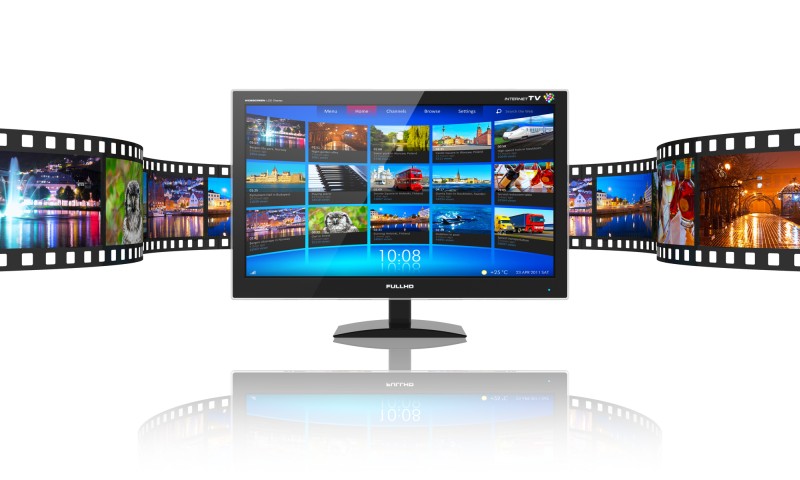In today’s digital age, the options for entertainment are seemingly endless. From streaming services like Netflix and Hulu to cable TV packages, there are many ways to access the shows and movies you love.

However, with so many options available, deciding which is right for you can take time. In this article, we’ll explore the pros and cons of streaming services TV versus cable TV, weighing the benefits and drawbacks of each to help you make an informed decision about your entertainment choices.
Pros and Cons of Cable TV
Cable TV has been a popular choice for home entertainment for decades, offering a wide range of channels and programming options.
However, like any service, it has its own pros and cons that you should consider before making a decision.
In this section of the article, we’ll explore the benefits and drawbacks of cable TV, weighing the advantages and disadvantages to help you determine if it’s the right choice.
Pros of Cable TV
Wide Selection of Channels:
Cable TV packages typically offer a wide range of channels, including both standard and premium options.
This means you have access to a diverse selection of programming, from news and sports to movies and specialty channels.
Live TV:
One of the significant benefits of cable TV is that it allows you to watch live programming as it airs. This is particularly useful for sporting events and news, as you can stay up to date with the latest developments as they happen.
DVR Capabilities:
Many cable TV packages include a DVR (digital video recorder), which allows you to record shows and movies to watch at a later time. This is a convenient feature for busy individuals who may need more time to watch their favorite shows when they air.
Cons of Cable TV
Cost:
Cable TV can be expensive, especially if you choose a package with many channels. The price of cable TV can quickly add up, especially if you are paying for premium channels or additional features like DVR service.
Limited Flexibility:
With cable TV, you are limited to watching what is being aired at a given time. This can be inconvenient if you have a busy schedule or want to watch something that isn’t currently being shown.
Long-Term Contracts:
Many cable TV packages require a long-term contract, which can be frustrating if you decide you no longer want the service. This can make it difficult to cancel your subscription without incurring fees or penalties.
Pros and Cons of Streaming TV
Streaming services have become increasingly popular in recent years, offering a convenient and affordable way to watch movies, TV shows, and more.
While these services have many benefits, they also have some drawbacks worth considering. In this article, we’ll examine the pros and cons of streaming services, examining the advantages and disadvantages to help you decide if they are a better fit for your entertainment needs.
Streaming services offer a wide range of options, whether you’re a fan of movies, TV shows, or live programming, but it’s crucial to weigh the pros and cons before calling your cable provider and making the switch.
Pros of streaming services
Cost:
Streaming services tend to be more affordable than cable TV packages, especially if you only subscribe to one or two services.
Many streaming services offer various pricing tiers, allowing you to choose a plan that fits your budget and viewing habits.
Flexibility:
One of the major benefits of streaming services is the ability to watch programming on your schedule. You can stream shows and movies on demand, pause and resume viewing at your convenience, and even download content to watch offline.
Wide Selection of on-demand Programming:
Streaming services offer a wide range of programming, including movies, TV shows, documentaries, and original content. This means you have access to a diverse selection of programming, all in one place.
Cons of streaming services
Limited Live TV:
While many streaming services offer some live programming, they may not have the same selection of channels as a cable TV package. This can be a drawback if you rely on live TV for news or sporting events.
Limited Availability on Some Services:
Some streaming services may not be available in all regions or offer limited programming in certain areas due to licensing restrictions.
This can be frustrating if you cannot access the shows and movies you want to watch.
Internet Connection Required:
In order to stream content, you need a stable internet connection (or even internet access via a data plan using 3G, 4G cellular etc). This can be a problem if you live in an area with poor internet coverage or experience frequent outages.
Should You Cut the Cord?
In conclusion, deciding whether to cut the cord and switch to a streaming service or stick with a traditional cable TV package is a personal decision that depends on your individual needs and preferences.
While streaming services offer flexibility and a wide selection of programming at a lower cost, they may have a different selection of live TV channels than a cable TV package.
On the other hand, cable TV offers a broader range of channels and live TV options but can be more expensive and require a long-term contract.
When considering whether to cut the cord, it’s essential to compare the costs and weigh the content that will be available to you.
Make sure to consider each option’s pros and cons to help you make an informed decision. Ultimately, the right choice will depend on your specific needs and budget.
Leave a Reply